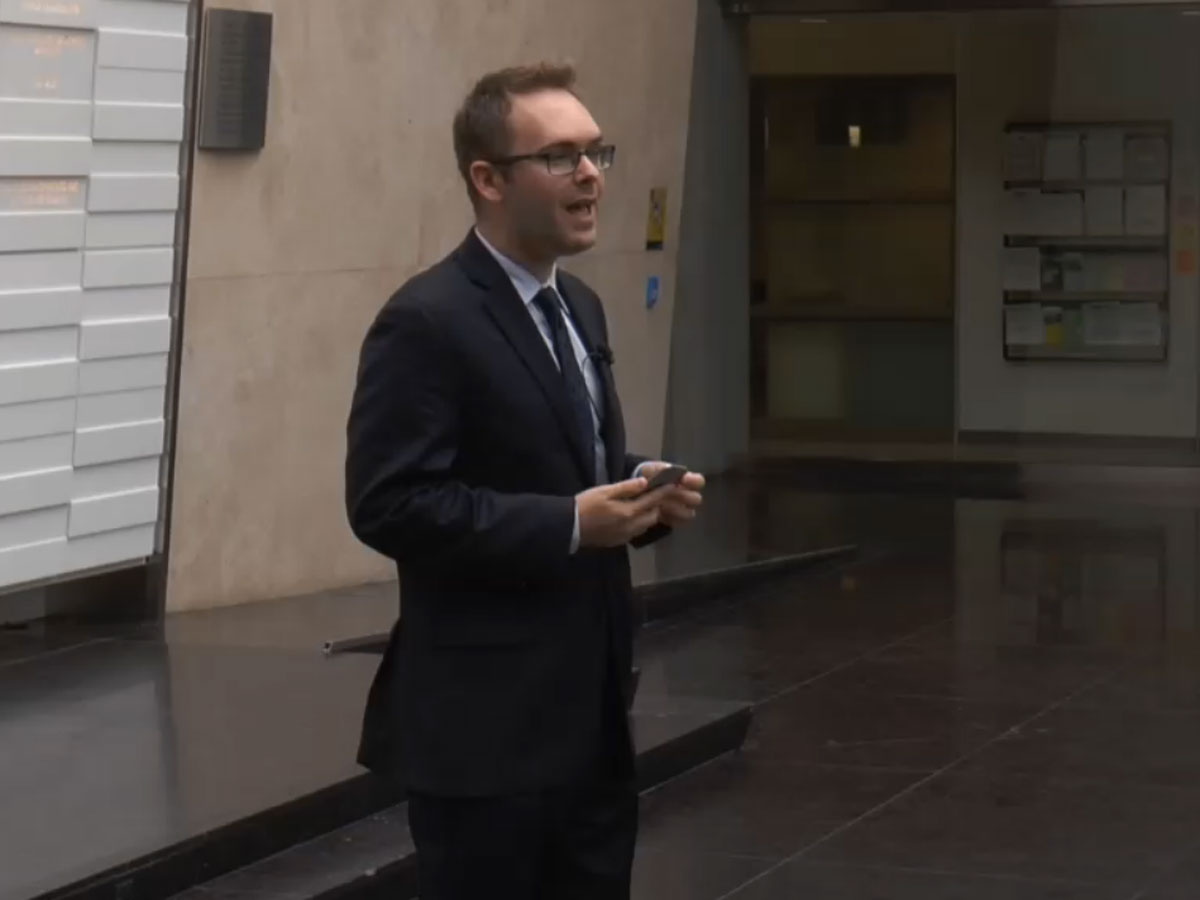Journalism in the age of Trump

Photo: Daniel Dale, the Toronto Star’s Washington correspondent, spoke at the Ryerson School of Journalism on February 15.
Toronto Star Washington correspondent Daniel Dale spent much of the 2016 presidential election filing a daily column called “Trump Checks,” in which he tallied up all of the future president’s false statements. Speaking to students from the Ryerson School of Journalism (opens in new window) on Wednesday, he shared a few of the emails he received from the now-President’s supporters.
“President Trump will make America safe again, will make America prosperous again, will make America great again,” said Dale, reading from his phone. “Mr. Dale, you may want to check out InfoWars.com and learn the truth about why Hillary Clinton must not be president.
In an election characterized by Donald Trump’s sweeping dismissals of the mainstream media, the panic over “fake news,” and the saturated coverage of Trump’s rise on cable news, the 2016 election did not seem like a golden age for journalism. But at the February 15 event (titled “The Trump Factor: What Canadian Journalists Can Learn from the American Election”), Dale offered reasons for optimism for the state of the media. In doing so, he offered eight points of advice for how Donald Trump’s election should inform this new era of journalism:
Evidence is paramount
Dale felt the erosion of public trust in 2013, when polls that as many as 50 per cent of Torontonians didn’t believe the Toronto Star’s initial report of the Rob Ford crack video. “People just don’t believe reporters’ words anymore,” he said. “We’ve never been in an era like this when a long-respected outlet will say, ‘I saw something,’ and much of the public will be like, ‘Show me.’” This new era of journalism will place a premium on Freedom of Information reporting, public records, and video evidence like the Trump Access Hollywood tape.
Pay attention to the other side
Dale warned against tuning out “fringe” elements, and warned against being stuck in a conservative or liberal media bubble. Dale noted that he occasionally checks in on Breitbart, the far-right news site where Trump strategist Steve Bannon was CEO. “Often it’s garbage,” said Dale. “There’s conspiratorial nonsense; there’s Islamophobic stuff … but I think what we learned from the Trump phenomenon is that what we thought was the fringe is not far from power, and what we thought was the fringe is propelling political movements.”
Journalists have to be “more perfect” than ever
On the day of the Inauguration, a reporter from Time Magazine incorrectly tweeted that a bust of Martin Luther King had been removed from the Oval Office. Though the reportedly quickly retracted and apologized for the error, the incident has been repeatedly used by the Trump administration as evidence of bias. “This is an era where your every word—whether it’s in print, whether it’s on Twitter—[will] be scrutinized. One screw-up, one evidence that you are biased, one careless mistake can do real damage to your credibility.”
Be as publicly human as possible
“Trump is doing his best to delegitimize not only the work of the media, but to delegitimize us as people,” said Dale. “I have been to a Trump rally where he has pointed at me and said, ‘This is the lowest form of humanity.’” To counteract the impression of the media as “an amorphous blob or bias,” Dale has tried to find opportunities to show his humanity. “Occasionally I’ll tweet about the Raptors,” he said. A more personal social media may demonstrate “that you have family, you have friends, you even care about the same sports teams they care about.”
Avoid prognostication
While reporters can provide analysis, nuance, and context to politicians’ statements, Dale advises against drifting into making predictions “that Hillary Clinton is in the lead, or that Trump’s campaign is in free fall.”
It helps to have an area of expertise
“The people who provide the most value to me are the journalists who know a ton about immigration policy, or economic policy, or Russia policy,” said Dale. A self-described “generalist,” Dale admits he can’t provide the deep analysis that a specialist could. “Whatever your passion is, related to policy—whether you care most about drone stuff, or social policy, or a particular ethnic or religious community—you will have more value on the journalistic job market and to readers than someone like me, who’s sort-of floating from story to story.”
Don’t be afraid to “call B.S.”
Despite what you may have heard about “alternative facts,” fact checking is not evidence of a lack of objectivity. “That’s not bias—that’s the fundamental task of journalism,” said Dale. “I don’t understand why it took so long for a bunch of American media to feel comfortable to say, ‘That’s not true.’”
It’s a good time to be a journalist
Whatever you’ve heard about the journalism industry, there’s no shortage of interest in politics. Whether it’s voting rights or the travel ban or gossip about Trump’s vacation in Russia, “there is such demand now for investigative reporting and nuanced commentary and smart policy analysis. Pretty much anything with ‘Trump’ in the headline gets readers.”
For a full video of the event, visit Ryecast (opens in new window) .